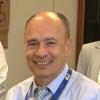
From 29 August to 1 September 2023, The European Association of Agricultural Economists (EAAE) will hold its 17th congress, which serves as a dynamic platform for convening scholars, practitioners, policymakers, and stakeholders to discuss the pressing issues in agriculture and food sectors. Setting the tone for the discussion, IIASA researchers will organize a pre-congress workshop titled “Towards New Baseline Scenarios in Ex-Ante Modelling of Land-Use and Management.”
Anchored by keynote luminaries, the pre-congress workshop will explore the pivotal role of baselines in policy impact assessments, focusing on the ongoing endeavors to establish a coherent medium-term baseline across economic models in two flagship Horizon projects: BrightSpace and LAMASUS.
Distinguished keynote speakers will share their invaluable insights into baseline development processes and their significance in policymaking in the context of the European Green Deal. Among them are:
- Tassos Haniotis, Senior Guest Research Scholar at IIASA; former Director of Strategy and Policy Analysis at the Directorate-General for Agriculture and Rural Development of the European Commission,
- Hubertus Gay, who coordinates the OECD-FAO Agricultural Outlook and leads the analysis of agricultural commodity markets at the OECD; and
- Ignacio Perez-Dominguez, responsible for the technical co-ordination of the EU agricultural outlook at the Joint Research Centre (JRC) of the European Commission.
Over sixty registered participants will share insights and experiences on the development of a consistent medium-term baseline across leading economic models (CAPRI, FARM-DYN, GLOBIOM, IMAGE, and MAGNET). IIASA researchers Tamas Krisztin, Ipsita Kumar and Petr Havlík, alongside their collaborators, will present their experience in deploying the IIASA GLOBIOM model in policy impact assessments, highlighting key results of the most recent EU reference scenario, and discuss new developmental needs. The workshop will also focus on the tools needed for a consistent multi-model baseline generation, such as harmonized reporting templates, convergence metrics, and web-based scenario explorers.
Click here to view the full agenda of the pre-congress workshop "Towards New Baseline Scenarios in Ex-Ante Modelling of Land-Use and Management.”
EAAE congress homepage (please note registrations to the congress have been closed since 1 July).
LAMASUS: Land Management for Sustainability
LAMASUS, an IIASA coordinated Horizon Europe project, fosters collaboration among policy makers, land users, and researchers. With the core focus on developing an open-access modelling toolbox, the project is aimed at catalyzing effective land use policies to support the European Green Deal’s objectives. By creating an innovative modelling system, enabling to anticipate the potential outcomes of agricultural and forestry policies, LAMASUS supports decision and policy makers to make well-informed choices that balance economic growth with environmental stewardship, forging the path toward a sustainable future.
BrightSpace: Navigating Safe and Just Operating Spaces
BrightSpace, a Wageningen Economic Research, Netherlands (WEcR) coordinated Horizon Europe project, confronts the challenge of harmonizing sustainable agricultural practices within a Safe and Just Operating Spaces (SJOS). Central to the project's mission is the identification of critical pathways for EU policies in vital domains such as agriculture, climate change, trade, and energy, as well as cultivation of effective and sustainable practices in those sectors. BrightSpace will create tangible solutions through an analytical toolbox that empowers experimentation, analysis, and synchronization of novel technologies, governance frameworks, and policies concerning agriculture. By developing a unified data framework and modelling toolbox, while acknowledging the diverse SJOS challenges across countries and regions, BrightSpace envisions SJOS possible futures by 2050 and beyond.
Upcoming Events
Austrian Academy of Sciences, Dr. Ignaz-Seipel-Platz 2, 1010 Vienna



